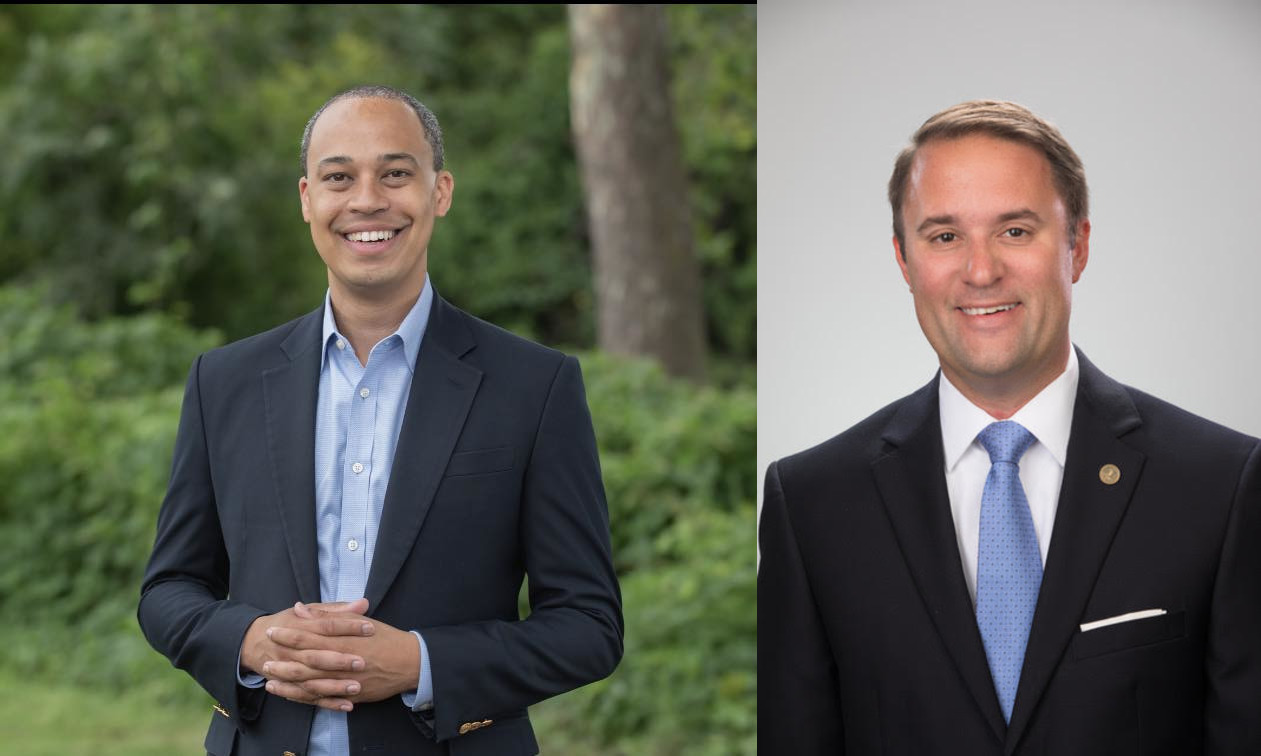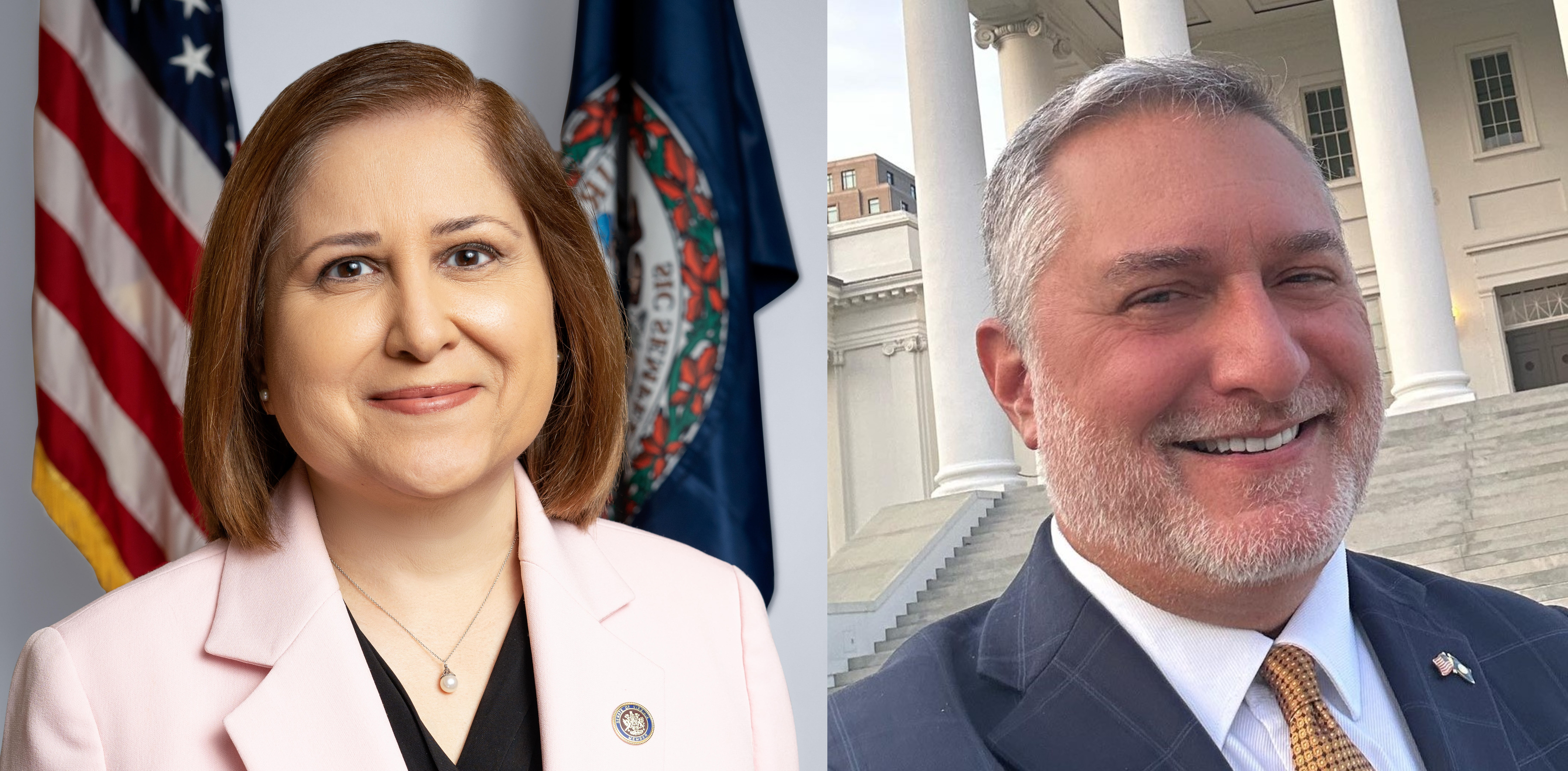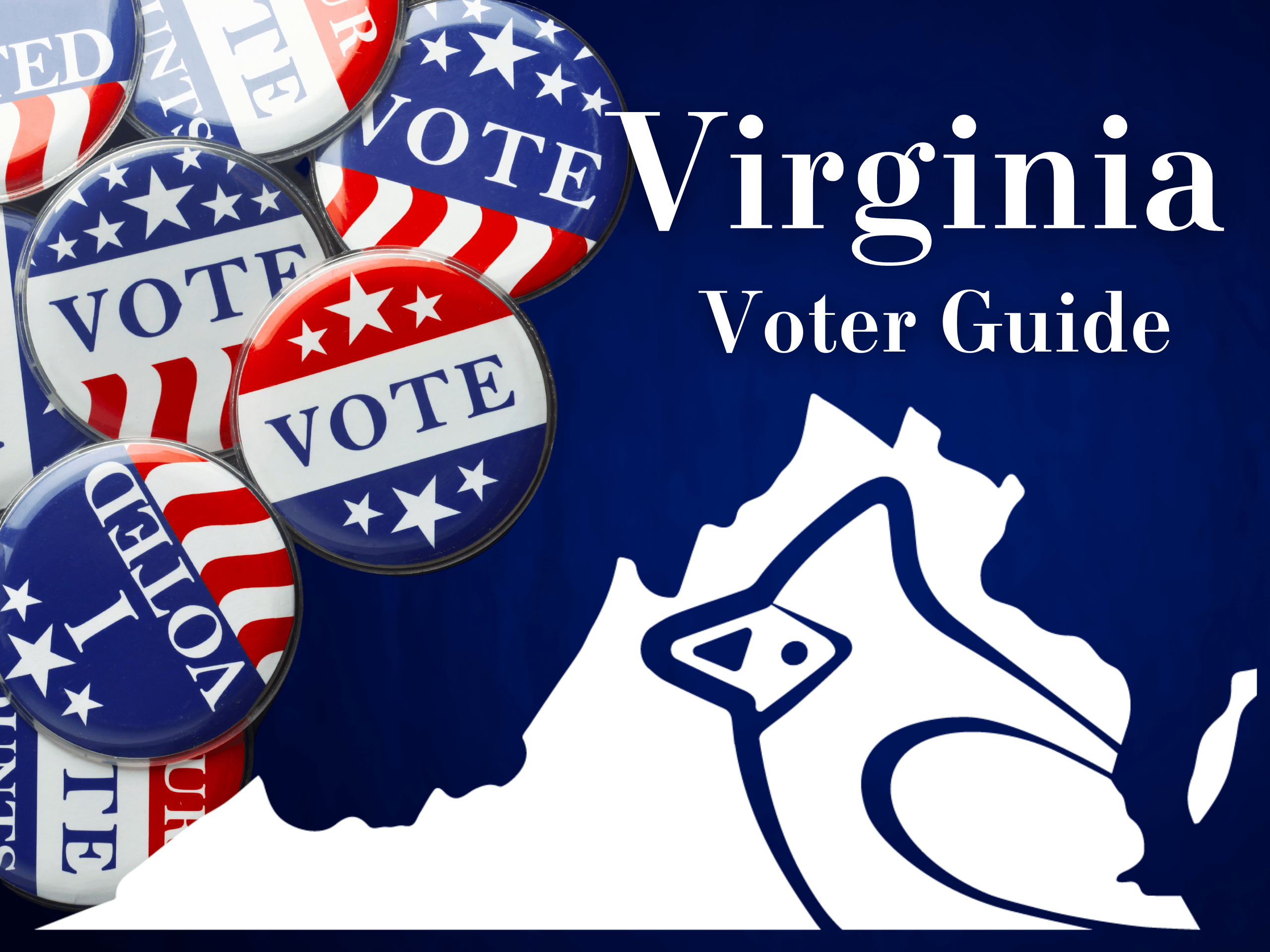There is an ongoing debate about debates among statewide campaigns this election cycle, with the first and possibly only event finalized for the two gubernatorial hopefuls with less than three months until Election Day.
That debate, scheduled for Oct. 9, is the first to be agreed to by both Republican Lt. Gov. Winsome Earle-Sears and former Democratic Congresswoman Abigail Spanberger. It is slated to be held at Norfolk State University and hosted by WAVY-TV. The Earle-Sears campaign confirmed its intent to attend in a statement sent out Thursday evening. Spanberger’s campaign confirmed she would attend in a statement Monday.
Confirmations from both parties came after three cancellations: The Earle-Sears campaign declined to participate in the statewide “People’s Debate,” which would have been hosted by Virginia State University and AARP Virginia, and the Spanberger campaign declined a debate that would have been hosted by CNN. Neither campaign agreed to participate in a debate that would have been hosted by the Virginia Bar Association.
The Earle-Sears campaign blasted Spanberger for turning down the CNN debate, and called the move by the former congresswoman “beyond absurd.”
“It’s proof she’s terrified of facing voters in an unscripted setting,” said Peyton Vogel, press secretary for Earle-Sears’ campaign, in a statement on Thursday.
The Spanberger campaign hit back and pointed out that the Earle-Sears campaign refused to participate in the traditional, statewide “People’s Debate” after months of negotiations.
“Abigail is prepared and ready to debate the issues at Norfolk State University, outline her vision for putting Virginians first, and make clear that her opponent is far too extreme for the commonwealth,” said Samson Signori, Spanberger’s campaign manager, in a statement on Monday.
Both campaigns mum on Appalachian School of Law/Cardinal News/PBS Appalachia debate in Bristol

The campaigns have yet to say whether the candidates will appear on a debate stage in the western part of the state.
Cardinal News, the Appalachian School of Law and PBS Appalachia announced in December that they joined together to sponsor a gubernatorial debate in Southwest Virginia. Neither campaign had responded to the invitation as of Monday.
Both campaigns were sent invitations on April 16 to participate in the debate, which had tentatively been scheduled for Sept. 18, to be broadcast from PBS Appalachia’s new studio in Bristol and available to stations across Virginia.
“We believe it is important to provide a platform for a substantive and impactful discussion. By convening this debate in Southwest Virginia, we ensure that the challenges and opportunities unique to our region are part of the statewide dialogue,” the invitation to the campaigns read.
The Cardinal News and PBS Appalachia debate would also carry on a tradition: It would be the fourth gubernatorial election in a row where a general election debate has been held in the western part of the state. Virginia Tech in 2013 hosted a debate, followed by the University of Virginia’s College at Wise in 2017 and the Appalachian School of Law in Grundy in 2021, according to the invitation.
Multiple attempts were made to reach the campaigns between April and June; all were met without commitment from either campaign. By the end of June, staff at Cardinal News reached out one last time and have yet to receive any acknowledgement from either campaign.
“During the last three gubernatorial elections, candidates from both parties understood and welcomed the opportunity to participate in a debate in our region. That both campaigns have failed to even respond, makes us wonder if they will also ghost our region post election,” said Luanne Rife, executive director of Cardinal News.
Neither campaign would they say why they would not commit to the debate when contacted by a reporter on Monday.
“If the campaigns commit, we will work with our partners to still host this,” Rife added.
Is this the era of declining debates?

Candidates for attorney general — incumbent Republican Jason Miyares and his Democratic challenger, Jay Jones — have agreed to one debate for the 2025 election cycle. John Reid, a former radio show host who’s the Republican candidate for lieutenant governor, has challenged his Democratic opponent, state Sen. Ghazala Hashmi, D-Chesterfield County, to multiple debates, but no nonpartisan organization has issued an invitation to the two campaigns to debate.

In the 2021 election cycle, one debate for attorney general took place and zero debates for lieutenant governor were scheduled.
Three gubernatorial debates that year were canceled. Glenn Youngkin, the Republican candidate for governor, declined to participate in a debate hosted by the Virginia Bar Association and “The People’s Debate,” and former Democratic Gov. Terry McAuliffe declined to participate in a debate that was slated to take place at Liberty University. The two hopefuls for governor squared off on the stage twice in September 2021.
“I think it’s the new normal, not just for governor races, but other big races as well,” said J. Miles Coleman, associate editor of Sabato’s Crystal Ball, the University of Virginia Center for Politics’ nonpartisan newsletter on American campaigns and elections. “A decade ago, it wasn’t uncommon for there to be three, four, five debates for a contest; now it’s like we’re lucky if we get one.”
Coleman attributed the declining number of debates to the rise of social media: It’s easier for candidates to get their message across to voters through social media sites rather than from a debate stage, he said. Coleman also pointed out that if a candidate does poorly on a debate stage, there’s an opportunity for their opponent to capitalize on the misstep.
He pointed to the second 2021 gubernatorial debate between McAuliffe and Youngkin. McAuliffe said, from the debate stage, that he didn’t “think parents should be telling schools what they should teach.” His statement was used in attack ads, and McAuliffe ultimately lost the election.
“That downside for the candidates just doesn’t make the juice worth the squeeze,” Coleman said. On the flip side, he noted that as the media has gotten more fragmented, people only watch or follow what they want.
“Something like a debate just doesn’t have the impact like it used to,” he said.
See where the candidates stand in our Voter Guide

We sent questionnaires to all the statewide candidates, all the candidates for the House of Delegates across Virginia and all the candidates for local office in Southwest and Southside. We’ve now published their responses (or, in some cases, lack thereof) on our Voter Guide.
Look up your city or county and see who’s on your ballot.
Attention, candidates: If you haven’t responded yet, you still can. If you need us to resend the link, let us know at elections@cardinalnews.org.



